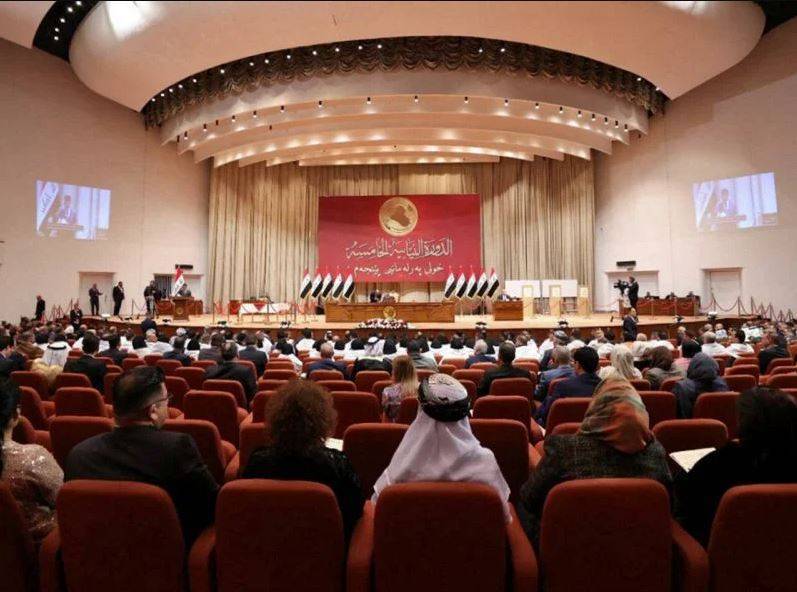
The inaugural session of the Iraqi Parliament in Baghdad, January 9, 2022. Photo of AFP archives
The Iraqi Parliament has indefinitely postponed the election of its speaker, initially set for this Wednesday, according to the state news agency INA. The delay comes as deputies focus on the Dec. 18 provincial elections.
In mid-November, Iraq's Supreme Court terminated the tenure of Parliament's Sunni speaker, Mohamed al-Halboussi, following a legislator's complaint concerning the "falsification" of a document.
Recent reports by Iraqi media have listed various potential candidates to succeed al-Halboussi. Yet, many analysts believe the Parliament will only address the election after the provincial polls slated for Dec. 18.
The parliamentary session was "postponed until further notice," INA reported late Tuesday, citing that "current conditions do not permit such a meeting on Wednesday, with deputies engrossed in provincial council elections and numerous parliamentary factions reporting their members' absence.”
In Shitte-majority Iraq, the 329-member Parliament is dominated by a coalition of pro-Iranian Shiite parties.
Iraq's political makeup, in this multi-ethnic and multi-sectarian country, is governed by a power-sharing system among various communities: the largely ceremonial presidential post traditionally goes to a Kurd, the prime minister's position to a Shiite and the Sunni community is represented by the speaker of parliament.
Elections and high-profile appointments are often protracted processes, lasting several months and plagued by continuous bargaining and hard-fought agreements.
On Monday, Iraq will conduct its provincial council elections, the first of its kind in a decade, spanning 15 regions.
In a country laden with hydrocarbons and corruption – and in anticipation of significant infrastructure projects – the provincial councils hold significant authority. They are responsible for electing provincial governors and allocating budgets for the health, transport and education sectors.
A section of the opposition and civil society views these councils as hotbeds of corruption that perpetuate cronyism. These councils were dissolved following the 2019 anti-government protest movement, with the previous elections having taken place in 2013.